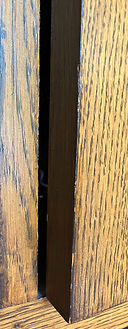To you, O LORD, I lift up my soul,
in You I trust, O my God.
Do not let me be put to shame.
Psalm 25:1&2
Into Illegal Territory
Before deciding that perhaps this section is not for you as you have not viewed illegal sexual material or participated in illegal sexual activities involving minors online, I would like to give you something to contemplate. Most of the men with whom I work have been arrested for online sexual offences, having never started out wanting to engage in them.
A Downhill Slope
This section is for various people – those who fear that their pornography use is getting out of control and that their boundaries have become very weak; people who are torrent downloading and receiving all manner of pornography, including images of children; people who have purposefully viewed illegal images; people in chatrooms where all kinds of images are being shared; and people who have been caught by the police at some point, and who want to understand their behaviour.
Sometimes people are drawn to offend against children online because of an interest in minors, but here I will be talking about looking at indecent imagery and talking to children sexually online as part of a wider pornography/chatroom problem.
Where the road could lead
I work with men, people like yourself whom you might meet on a train or strike up a conversation with in a queue, who are struggling for understanding about how they came to be arrested for accessing child abuse images, or talking sexually to minors online. More often than not, they are not people who came to the internet originally hoping to find such images, but the route of pornography tolerance or even addiction, unimpeded by self-understanding and the barriers of wisdom, led them to this place.
When I first talked to an experienced pornography recovery facilitator, he told me that there were books out there that did deal with pornography from a Christian perspective but that none of them had the addition of helping those who had strayed into looking at illegal images. Given the unlikeliness of someone going into a bookshop and getting a book on just that subject, I have appended it to this website. It is also, though, wholeheartedly a website just for people struggling with pornography use. By all means, finish reading where you need to.
In my work with people who have offended online, some have asked why no one has put up warnings on pornography sites, indicating the kinds of harms that might follow use – relationship difficulties, shame, going down the path to offending. Whole books could be written in answer to this but suffice it to say that government willingness to address pornography has been extremely lacking and even harmful, where it allows the Crown Prosecution Service to change the standards on what is deemed extreme, paving the way for an acceptance of harm (CPS personal communication, 2019). Given that the governments of the world are largely not helping (though the US seems to be responding a bit better these days), people need information from somewhere as they are highly unlikely to seek it out themselves. Pastors and priests, are yours churches that save people from harm?
The door left ajar

Chatrooms and social media constitute dangerous spaces. I have talked to men who say they were in technology chatrooms looking up software and someone decided to chuck some pornography in there. Equally, I have known countless men who were on generic Kik or other platforms spaces where pornography was being shared and someone puts in IIoC.
What happens at that point? The ideal would be that the recipient reacts with concern/horror and reports the site to the Internet Watch Foundation. Sometimes, though, because of what is going on physiologically at that point, a response comes which is based on arousal rather than consequential thinking. There is even some research that found that centres in the brain controlling disgust were less effective during times of arousal.